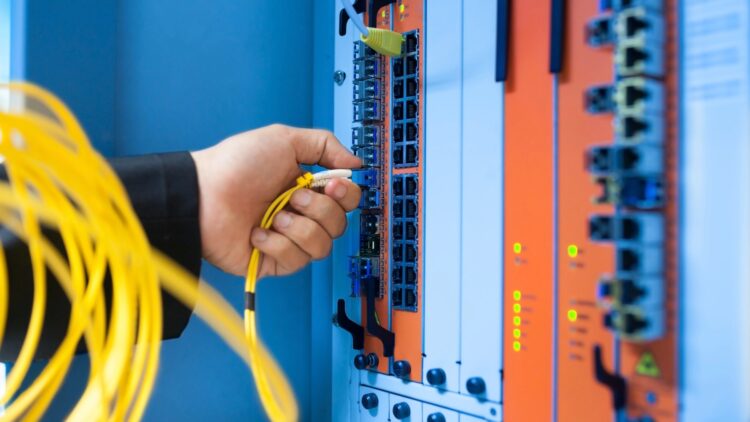With increasing incentives for AI technology development, the emergence of data centers needed to support these digital services is becoming increasingly frequent, and with this arises a new concern: electricity consumption. These centers are consuming such a significant amount of energy that some US states are considering decisive measures that involve temporarily cutting off the power supply to these technology centers, aiming to avoid blackouts that would affect millions of people.
The explosion of data centers
With the race to develop AI-enabled technologies, many companies have begun investing in data centers across several cities in the United States. Each center consists of numerous servers responsible for storing and processing data from various sources, such as social media and streaming platforms.
The main consequence of this expanding data processing infrastructure is that these centers consume a significant amount of electricity, jeopardizing the local energy supply. In many states, the demand for energy from these centers is growing faster than the capacity to build new plants to meet this demand.
Texas, for example, was the first to pass laws that allow large energy consumers to be disconnected in times of crisis, which can encompass a variety of scenarios such as heat waves or extreme cold, in which electricity consumption by the general population increases, thus increasing the risk of blackouts. One of the main reasons for the creation of this measure in the state was the experience of the 2021 blackout that caused some tragedies leaving dozens dead after a winter storm.
Expensive energy and political dispute
Beyond the issue of increased electricity consumption, this topic also generates discussions about the impact on bills. Electricity bills in the US have been rising at twice the rate of inflation, and part of this increase is a direct consequence of high demand from big tech companies. In other words, ordinary consumers may be subsidizing data center energy consumption to some extent.
The proposal to temporarily close these centers during peak consumption periods, as expected, generates mixed opinions. For companies like Google and Microsoft, continuous power is necessary to guarantee services without interruptions or any other impact. It’s expected that industry representatives will be pushing for flexible rules, allowing the use of their own generators or, as a last resort, a level of financial compensation in the event that grid disconnection is unavoidable.
Adaptations and agreements as possible alternatives
Governors of some states like Pennsylvania, New Jersey, and Maryland also expressed their concerns, stating generally that they fear that strict measures will scare away billions of dollars in investments in digital infrastructure, at a critical time when there is fierce competition with other regions of the US and even with countries like China.
Despite this resistance, some examples show that the sector is capable of adapting. For example, in the state of Indiana, Google entered into a voluntary agreement with a local utility company to reduce consumption at its future $2 billion data center. The idea is to postpone non-urgent tasks during times of greatest pressure on the power grid, helping to balance demand.
Between technological innovation and energy security
Another alternative discussed is requiring data centers to be self-sustainable and build their own energy sources, such as solar or wind farms. This solution, however, requires significant investment and doesn’t solve the immediate problem of critical periods of extreme heat or cold.
The rapid and large-scale growth of artificial intelligence has brought clear benefits to the population, but it has also placed significant pressure on electrical infrastructure. Many American states are now seeking a delicate balance: protecting the grid, regulating rates, and, at the same time, not driving away technology investments.


